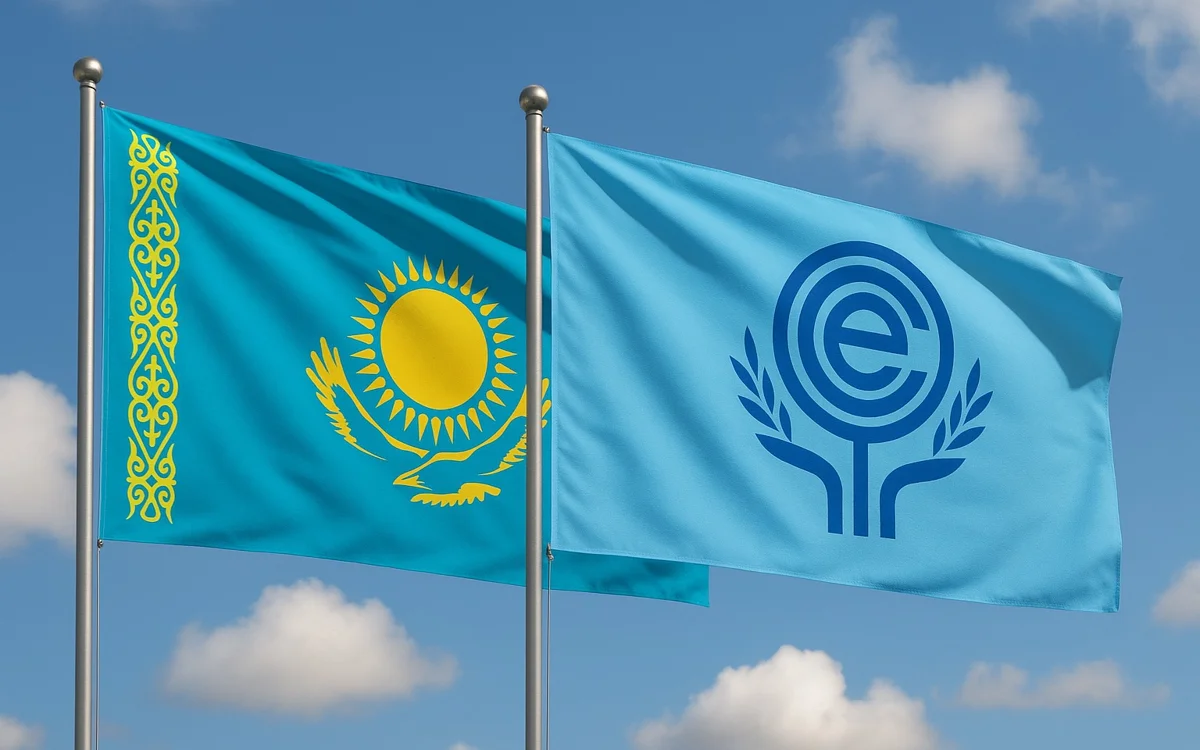
The 17th Summit of the Economic Cooperation Organization (ECO) will take place on July 3–4 in Khankendi, bringing together representatives from ten member states with a combined population exceeding 500 million. This was reported by Kazinform, citing Trend.
This year, Kazakhstan holds the chairmanship of the organization — a position that is not merely ceremonial but reflects the country’s proactive and well-considered strategy to strengthen economic ties across the Eurasian region.
Kazakhstan, a member of ECO since 1992, plays a key role in the institutional development of the organization. Its current chairmanship — the second in its history — symbolizes the country’s renewed position as one of the leaders in regional integration. Amid global instability, Kazakhstan is not offering abstract rhetoric, but concrete projects and initiatives.
Foremost among these is the development of transport infrastructure. Kazakhstan is actively promoting the Trans-Caspian International Transport Route (TITR) and the North–South corridor. The country has signed roadmaps with Azerbaijan, Türkiye, Iran, and other partners to eliminate bottlenecks and enhance route capacity. By 2027, transit volumes along the TITR are expected to more than double — from 4.5 million to 10 million tons. The modernization of the ports of Aktau and Kuryk is nearing completion, digital customs solutions are being introduced, and efforts are underway to create a unified space for transit trade.
In parallel, Kazakhstan is working to deepen economic integration. The country is actively engaged in establishing the ECO Transport Council, advancing the digitalization of trade processes, and supporting the development of cross-border production chains. All these efforts are aimed at reducing trade barriers and boosting regional commerce, according to Trend.
In 2024, Kazakhstan’s exports reached $81.6 billion, with total foreign trade amounting to $141.4 billion. Notably, food exports rose to $2.8 billion, underscoring Kazakhstan’s emerging role as a guarantor of food security for its neighbors and countries in the Middle East. Türkiye, Uzbekistan, and the Kyrgyz Republic — all ECO members — rank among Kazakhstan’s key trading partners, further highlighting ECO’s importance as a platform for economic diversification.
Beyond economics, Kazakhstan also prioritizes sustainable development. Projects such as the construction of the Shaulder Solar Power Plant, participation in the “green energy corridor” with Azerbaijan and Uzbekistan, and initiatives to improve water infrastructure align with the climate agenda of the upcoming summit and contribute to the long-term environmental sustainability of the region.
The summit’s location in Khankendi — a city symbolizing recovery and a new chapter in regional dialogue — lends the event particular significance. Against this backdrop, Kazakhstan’s ECO chairmanship is not merely procedural; it is strategic in nature, offering member states a clear agenda focused on trade digitalization, sustainable investment, and transport connectivity.
In this way, Kazakhstan is shaping a new architecture for regional cooperation. Its initiatives serve as a catalyst for economic growth, stronger interconnectivity, and sustainable development, and the Khankendi summit may well mark a turning point in transforming ECO into a more effective and action-oriented platform.